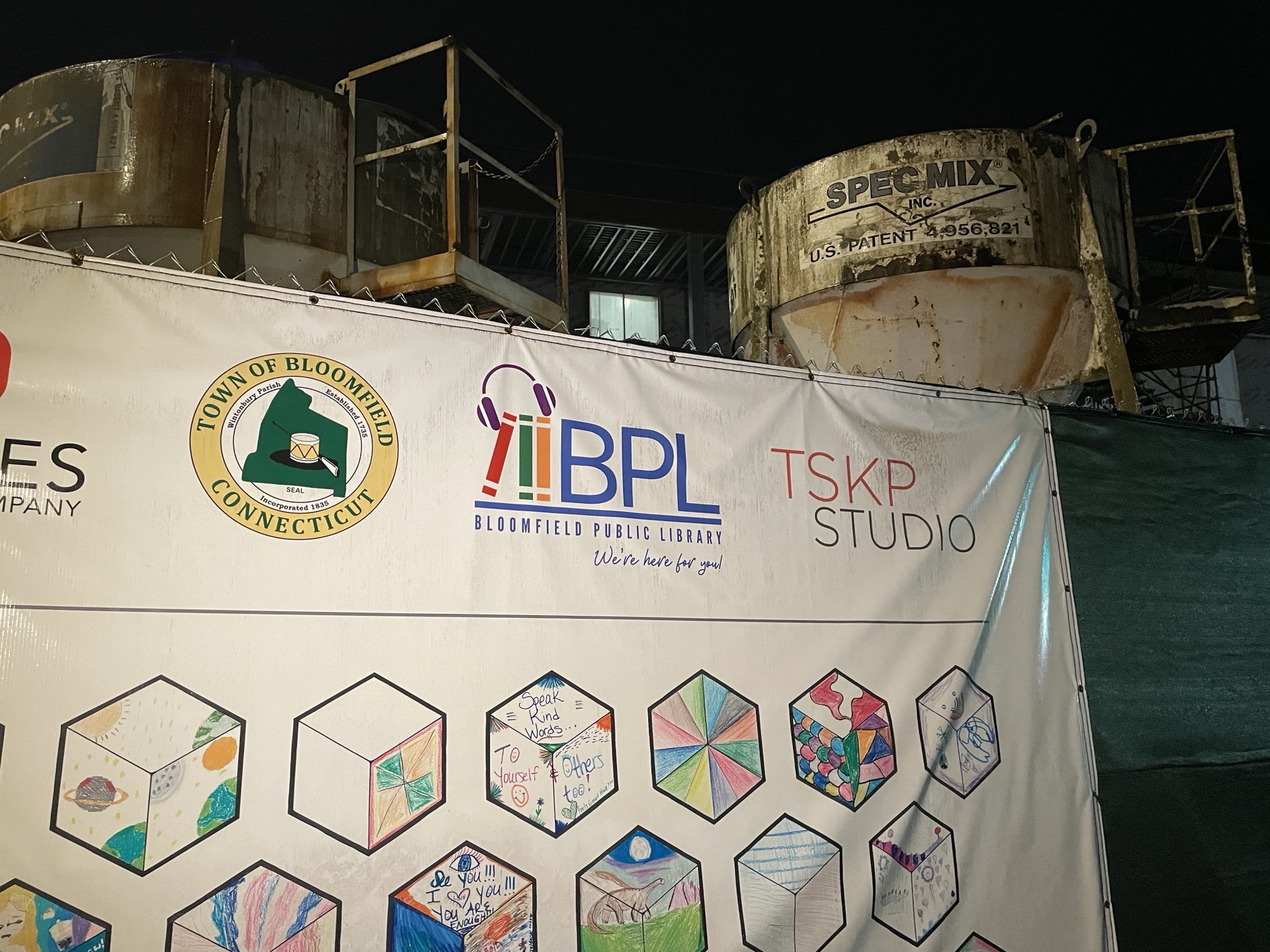Even amid a pandemic, families continue to grow in Connecticut and around the country.
As the demand for sperm donors increases across the country, some are turning to social media to find a donation during the coronavirus crisis.
WATERBURY COUPLE STRUGGLING TO CONCEIVE
Shannon and Sheila Sweeney-Garcia met online five years ago.
Get top local stories in Connecticut delivered to you every morning. Sign up for NBC Connecticut's News Headlines newsletter.
“I never thought in a million years you’d find me on a dating website, but it happened,” laughed Shannon, 31.

The Waterbury couple married just months later,
Local
“Which was crazy. I knew it,” said Shannon about her immediate connection with Sheila, 35.
Now the couple is hoping the internet will bless them again.
“In my heart, I won’t lie. That’s my biggest dream. It’s not just to be a mother, it’s to go through a pregnancy,” said Shannon.
They’ve found a sperm donor on Facebook as they struggle to start their family.
“We looked at sperm banks and we realized that it was way, way out of our range financially,” said Sheila.
We looked at sperm banks and we realized that it was way, way out of our range financially
Sheila Sweeney-Garcia
They’re not the only ones searching for donors on social media. Facebook groups like “Sperm Donation USA” have attracted thousands of members. There, women from around the country post their pregnant pitch which includes what they’re looking for from a donor and where and how they want to collect the donation.
Those willing and able to donate sperm are stepping up and volunteering their services.
“Right when we put them up,” said Shannon, referring to their original Facebook post on the group’s page, “We had over 30 people in our inbox. Instantly.”

That group is where the Sweeney-Garcias connected with their current donor.
“He personally says he does it because he wants to help," said Shannon. "He wants to make people like us that want to have a family have that chance,” said Sheila of their donor, who travels from Massachusetts to donate to them.
They pay for his travel fees and offer to buy him food.
A doctor we spoke to says a donor cannot be compensated for a sperm sample, as it's considered an organ donation. But donors can be compensated for their time and effort, as is the case at sperm banks.
SEARCHING SOCIAL MEDIA FOR SPERM DONATIONS
Kyle Gordy isn’t the Sweeney-Garcias’ donor, but he had volunteered to donate his sperm to the couple.
“If you’re asking why, ‘why don’t you just go to a [sperm] bank and donate there and you get money? Well at the bank you don’t actually get to meet the people. It’s cold and clinical,” said Gordy of Los Angeles, California.
The 29-year-old, who created the Facebook group “Sperm Donation USA,” says he likes helping people conceive, as he wasn’t sure if he would ever have any kids of his own.
“Dude, I’m happy when I find out that somebody’s pregnant. I’m ecstatic.”

Gordy says he’s been donating his sperm to women for seven years now and has multiple children.
“So currently, that I know of, I have 35 born and another five on the way,” said Gordy, during an interview with NBC Connecticut in January.
Gordy says members of his Facebook group keep growing even in a pandemic.
FERTILITY EXPERTS SAY: STICK TO SPERM BANKS
Dr. John Nulsen does not recommend finding a donor through Facebook.
He’s the IVF director at the Center for Advanced Reproductive services in Farmington, CT, which works with four sperm banks to help woman during their fertility journey.
He says the FDA has “very strict regulations” for screening, whether the donor wants to stay anonymous or is known to the recipient.
In a statement an FDA spokesperson says in part, while the administration regulates donated reproductive cells or tissues which includes sperm, "its authority is limited to preventing the transmission of communicable diseases, such as human immunodeficiency virus, and hepatitis B and C viruses."
When asked about this growing trend of people finding a donor on social media, an FDA spokesperson says while “The FDA does not speculate on hypothetical scenarios. However, generally speaking, any establishment (individual, partnership, corporation, association or other legal entity) engaged in the manufacture (recovery, processing, storage, labeling, packaging or distribution)” of human cells, tissues or cellular or tissue based products must register with FDA and follow their regulations.
They caution folks to make sure any donation they receive is appropriately regulated.
Nulsen says beyond FDA-regulated testing, “With the sperm banks we utilize, they do intensive screening not only clinically on the potential donor, but psychological evaluation and genetic evaluation to make sure the potential donor isn’t a carrier of some potential genetic disease. Additionally, there are legal contracts that are drawn up between the donor and the recipient couple."
With the sperm banks we utilize, they do intensive screening not only clinically on the potential donor, but psychological evaluation and genetic evaluation to make sure the potential donor isn’t a carrier of some potential genetic disease.
Dr. John Nulsen
In addition, he says sperm banks usually limit the number of families the donor can contribute to. And he says fertility specialists work with patients throughout the process addressing potential underlying medical issues and providing much needed psychological support too.
“It’s safer for you. Ultimately, it’s going to more effective in terms of getting you pregnant, you're going to get pregnant faster, and ultimately it’s going to be less expensive for you,” he said.
While costs vary depending on a variety of factors, like insemination attempts, one cycle can typically cost at least a couple hundred dollars.
“If you actually look at all of the costs of having and raising a child and you look at sort of the ‘risk/benefit ratio’ to spending a $1,000 a pop for a vial of sperm, at the end of the day this is a very financially wise decision, as opposed to all of the really bad things you can happen if you meet somebody on Facebook,” said Dr. Jaime Shamonki, the chief medical officer of Generate Life Sciences, the company which runs California Cryobank.
SPERM DONATION DEMAND
There are no sperm banks based in Connecticut.
But NBC Connecticut spoke with sperm banks around the country, like California Cryobank, who work with folks looking to conceive here in our state.
Like Gordy, they too are seeing an increased demand for donations as more single woman and LGBTQ couples are choosing to start a family.
“So many families are being formed through accessing third party donations: egg donors, and sperm donor,” said Shamonki.
She attributes this to our society’s more accepting definition of a ‘family.’
“We’re not in the dark ages anymore.”
Plus, she and representatives from other sperm banks we spoke to think more people may be thinking about family planning and what’s important to them during the pandemic.
“Family is always the highest priority, but especially now this time of reflection, I think we're really putting an emphasis on family and doing the things that are kind of self-care oriented,” said Shamonki, who says their bank is “over indexing” the number of vials they expect to sell every month.
Family is always the highest priority, but especially now this time of reflection, I think we're really putting an emphasis on family and doing the things that are kind of self-care oriented
Dr. Jaime Shamonki
For example, California Cryobank tells NBC Connecticut they had a 7% year-over-year increase in sperm vials sold from their 2020 4th quarter compared to that in 2019.
In addition, there’s definitely a component of pent up demand too after coronavirus crisis closures shut down fertility procedures for a couple of months, like at the Center for Advanced Reproductive Services in Farmington.
“It’s really interesting. When we opened back up, we had quite a surge of patients because there was a backlog of the patients we hadn’t been able to see,” said Nulsen.
By the fall, even when doctors there made their way through the backlog, the pandemic hadn’t slowed down their fertility services.
“it’s as busy as it’s ever been, so it doesn’t seem at this point in time (the pandemic is) inhibiting people wanting to move forward with evaluation and treatment,” he said.
CHECKING BACK IN WITH THE SWEENEY-GARCIAS
Despite the experts’ advice, the Sweeney-Garcia’s told NBC Connecticut they’re going to continue trying to get pregnant with their donor
They say they’ve carefully screened him, like asking him for STD paperwork, and setting up a donation agreement.
Most importantly, they say they’ve gotten to know him personally, a relationship they cherish and believe they couldn’t have built through a sperm bank.
“Believe it or not, he brings his son and we go and play with him and he goes and donates and leaves. It sounds crazy, but it’s really that simple,” said Shannon Sweeney-Garcia.
While the couple continues their journey, they want other women struggling to get pregnant to know that they’re not alone.
“That's the biggest thing is just not giving up,” encouraged Shannon who has been through a lot of highs and lows during this process.

“It’s unfortunately very common. Fifteen to 20% of couples who are trying to conceive will have infertility, so it’s not that uncommon,” said Nulsen.
He hopes the more people realize this the less stigmatized infertility will seem.
In a field that’s been shrouded by mystery, secrecy, and sometimes shame, reproductive experts hope more education helps empower women as the experts are seeing a higher demand for their services.
“You deserve to have a family. You deserve to do it in a safe way, and afford it, and you can ask your doctor any questions,” said Shamonki. “We need to be able to empower all women to be parents. Everyone deserves that.”



